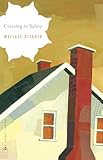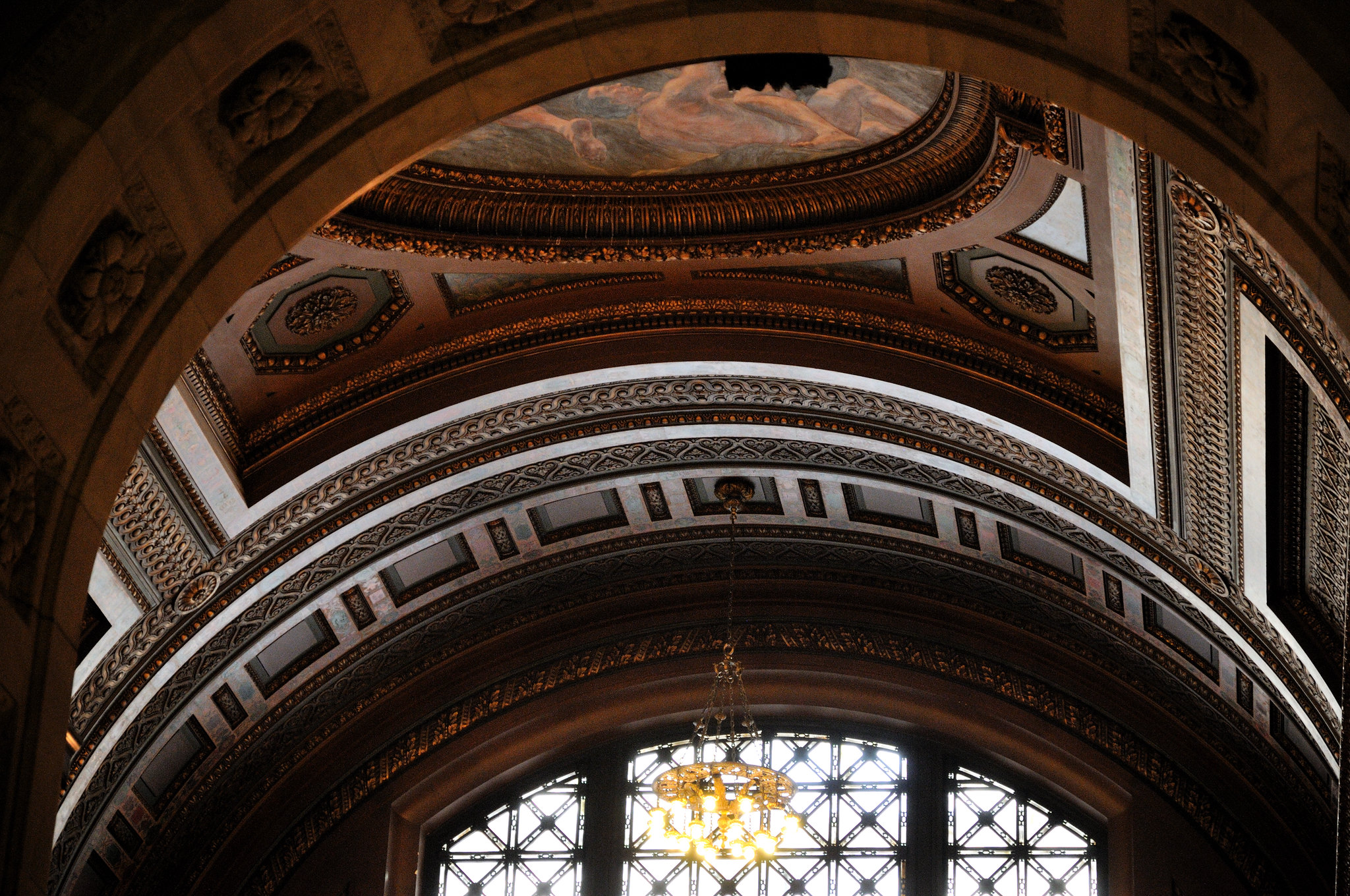One of the first essays I ever wrote was about my room. I was in high school, and the class assignment was to write about a place that was important to us. Five hundred words was expected; I think I turned in three times that. I described everything, from the Renoir poster over my bed to the black-and-white satin musical notes mobile over my desk. I delved into the critical importance of each item on my bookshelf and dresser. I highlighted the “I’d Rather Be Dancing” bumper sticker I’d stuck on my closet door (though I didn’t end up a dancer). A major theme was my love of the color blue, how it calmed and inspired me. I remember working hard to get my description of the way the sunlight filtered through the blue curtains just right.
The piece didn’t have much shape, but with hindsight I see what it revealed: I spent too much time setting up my room! By the end of high school, I did most of my homework at a large desk in my father’s office on the floor above. The rest of my time was spent at the piano or in the family room.
After college, I moved to New York with no furniture. A mattress was easily acquired by dialing an 800 number (I still remember: 1-800-MATTRES, leave off the last S for savings!), and my roommate had a sofa and table, so the only thing I needed was a desk. I spent a lot of time looking for one. I was working in publishing, trying to write in the mornings and evenings, and making very little money. I thought if I had the right desk, everything would be easier. I went to estate sales, church sales, the Salvation Army. I considered one of those lap desks from the Levenger catalog, but was afraid I’d feel like an invalid. One day, complaining to my father about this lack in my life, he told me a story. He’d known a man—the father of a childhood friend—who spent his retirement building the studio of his dreams. His whole life he’d wanted to write and paint, and now he would have the time to do it. As soon as the studio was finished.
This sounded fine to me. Where was it? Were they still friends of ours? Could I rent it?
He designed it beautifully, my father continued; the man was a good carpenter, worked on it for years. Apparently he showed it to my father at one point. He walked him through this perfect backyard work space, but what struck my father was how the man talked on and on about all the things that weren’t quite right yet.
The story appeared to be over.
What happened? I asked.
He died before it was finished, my father said. Never wrote a thing.
I kept looking for a desk, but I can’t say I wasn’t rattled. I eventually found something I liked and could afford at a very depressing estate sale on the Upper West Side: an antique, Mission-style writing desk that probably should have been found by someone able to afford to have it restored. I brought it home as it was, rough and rickety, for $150 and used it for a year. When I left that apartment, I sold the desk to the next tenant because it wouldn’t have survived another move. She worked in publishing, too, and wanted to write, so it felt like the right thing to do.
But I also think my father’s story had taken root. I began to suspect I was too susceptible to the idea of the “writer’s desk” and decided it might be better to do without one. Somewhere along the way, I began to work in libraries. More important, I began to get work done in libraries. I acquired a laptop, a padded case for it, and a backpack. I carried pens, a notebook or two, a legal pad, and a few books. Very soon I felt like the academic equivalent of the college student backpacking abroad—I was entirely self-sufficient! I didn’t need a private desk and the talismanic power of special objects surrounding me. All I needed was a warm cardigan (summer temperatures can be freezing) and the ability to ignore certain trivial rules (no drinking in the reading room; I’m very discreet with my coffee), and I had everything I needed to work effectively.
Libraries I have loved: the Library of Congress in Washington, D.C.; in England, the British Library and the London Library; the Charlottesville Public Library; the Miller Center at the University of Virginia; the Fine Arts Library at the University of Pennsylvania; Bobst Library at New York University; and in Connecticut, the Essex Library and the Old Lyme Library. These are the places where I worked on the stories of my first collection, Bending Heaven, and the book that became my first novel, The Report.
As work spaces, they were not always ideal. The small public libraries, for example, were rarely quiet. I asked a librarian about it once and she said, “Silence is not a priority.” Personal observation suggests that middle school math tutoring is.
The university research libraries have established quiet study rooms, but offenders are hard to police. I once asked a couple of undergraduates to take their bubbly conversation outside, and spent the rest of the day feeling like an old grump, which turned out to be not particularly conducive to writing. Oddballs can populate membership libraries like the British Library and the London Library. One man used to exclaim every half hour or so, “1734! Shit!” The date changed (though it was usually in the 15th or 17th centuries), as did the expletive, then he’d rub his forehead and abandon his books for a while.
People like the date mutterer are colorful when you’re writing well; distractors and the reason you can’t get anything done when you’re not. But the alternative worries me more. I’ve watched friends put a great deal of time into the renovation of houses and the decoration of studies or offices, and in this realm they have triumphed. They have beautiful places to work. But a lot of time has gone into those spaces and when I look at the creative output versus the time spent on preparing them, I remember my father’s story and think, No. Better to make do, sit down, get to work.
 There is a passage from Wallace Stegner’s Crossing to Safety that I remembered recently. A daughter, standing in her father’s impeccably arranged shop, ruefully describes the man who never quite became the poet and scholar he meant to be. A friend of the family says, “Is it compulsory to be one of the immortals? We’re all decent godless people, Hallie. Let’s not be too hard on each other if we don’t set the world afire. There’s already been enough of that.”
There is a passage from Wallace Stegner’s Crossing to Safety that I remembered recently. A daughter, standing in her father’s impeccably arranged shop, ruefully describes the man who never quite became the poet and scholar he meant to be. A friend of the family says, “Is it compulsory to be one of the immortals? We’re all decent godless people, Hallie. Let’s not be too hard on each other if we don’t set the world afire. There’s already been enough of that.”
Hallie replies, “I know. I sound like Mom. But it does bother me that he never gets past preparing. Preparing has been his life work. He prepares, and then he cleans up.” (emphasis mine)
Wise words, and ones I read over ten years ago. Yet when I went looking for the passage for this essay, I opened the book to the exact page. And it was not dog-eared! It was not my copy, but a library book. I checked the edition to make sure the spine had not been cracked to this place by some other nut worried about spending her life only preparing, but it appeared to be undamaged. How did I turn right to it after all these years? The idea must have haunted me more than I knew.
But there is one more reason I work in libraries. I have a section of a poem about solitude by Jennifer Michael Hecht copied in one of my notebooks:
bestial from not being seeing;
staring out the window with wide, immortal eyes
I’m fairly certain that would be me at home, alone. The date mutterer and the throat clearer and the woman who wears black cardigans (she must have twenty!) and the young man with a spectacularly loud space bar, they are doing me a service. I am grateful to them. God knows what they’re working on, but I see them, and I know they see me. Being seen keeps me sane.
And maybe others feel the same. I’ve just watched a woman come in and sit down in the seat next to the older gentleman who so often works in my current library, the man with the portable word processor, an unusually upright bearing, and wide eyes. He is away from his seat and she has taken one of his books and is browsing through it. Could she know him? I’m hungry and would like to leave for lunch, but I feel I must wait to see this played out. If he doesn’t know her, what will he say? Will he ask for his book back?
He returns and they smile at each other. He says, “Why, where have you been?”
To me, that is worth not having a special pencil cup on my own desk at home.
Image credit: Flickr/racreations.









